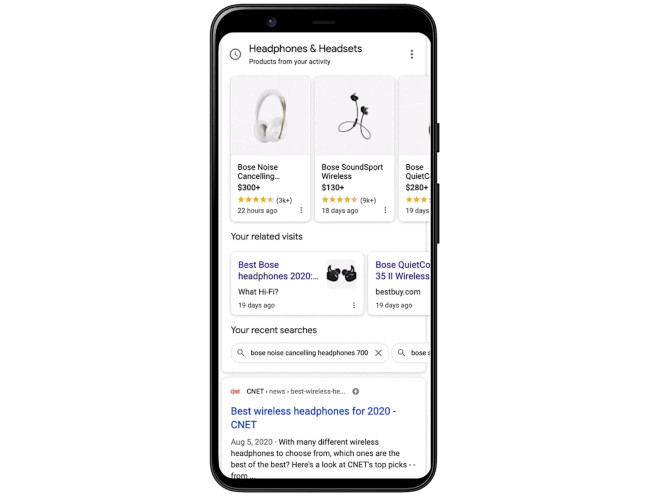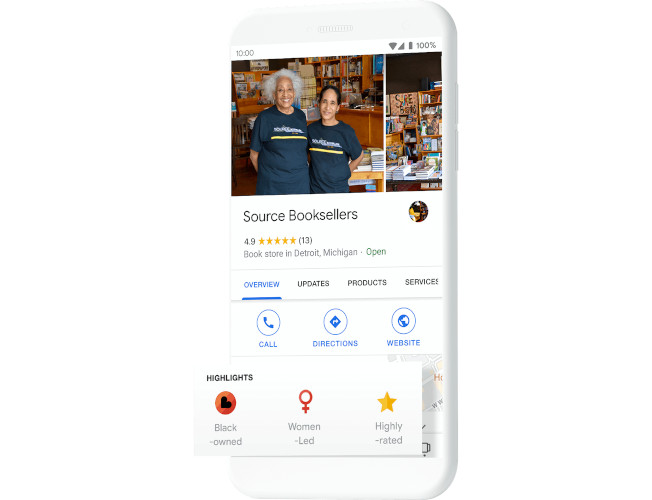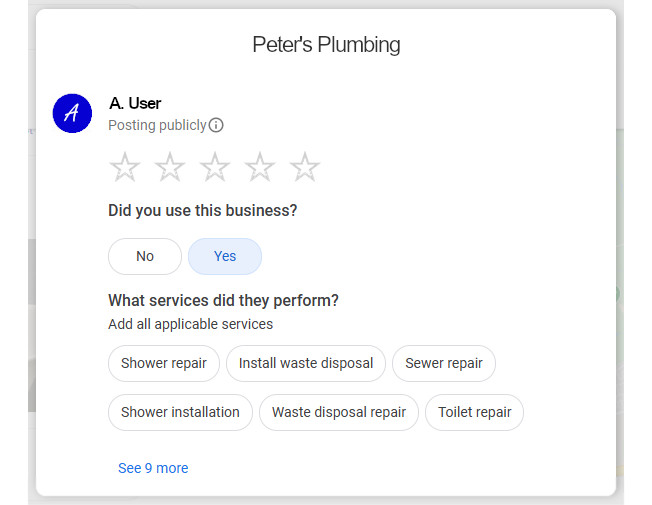Although there were few surprises this month in local search, Google released a number of significant updates as they lean in to plans they’ve been preparing all year—including changes in shopping, a greater emphasis on mobile page speed and reviews, and a smattering of new COVID-related mechanisms.
None of these updates should come as a shock if you’ve followed this series in 2020. If not, now is a great time to tune in and get ahead of these trends before your competitors do.
Google expands search activity cards to shopping, jobs, and recipes
Activity cards are rich search results at the top of mobile searches that include images and snippets. Google has added these to the top of many search results pages where they may be relevant to the user query. Most recently they have expanded these cards to include job listings, recipes, and products.
These cards are relevant not only to a user’s current search query but what they have viewed before. For example, product activity cards may not only show you headphones as you search for them but may show you other gadgets which were featured in an article you previously read. This is an exciting feature for local search marketers, who should be able to drive new leads with products featured in activity cards.

To have your products appear in these activity cards, you will need to upload them to Google’s Merchant Center—which also, handily, makes them eligible to rank organically in the product carousel. On a related note, Google’s local pack carousels have also been updated: they now display both images and products “sold here”, although the inventory status of such products is not given.
Activity cards and the further-expanded organic product carousel show Google’s desire to become a shopping platform. At the very least, retailers should consider dedicating at least some of their marketing resources to capture the free leads generated by these Google features.
Bing Shopping offers free product listings
Following Google’s lead, Bing is also making strides to become a more significant shopping venue. This month, its has permitted free product listings in the Bing Shopping tab. These listings are organic and based on the user’s query, and are not attached to any form of paid advertising (yet).
The free product space on Bing is being offered to pre-approved Microsoft Merchant Center store owners and will launch with a small volume of traffic this month. The ability to promote products for free is currently only available to merchants in the US, but will eventually roll out to those in the UK, Canada, Australia, France, and Germany.
Google adds “Black-owned” business attribute to local listings
Google said it has seen “a surge in online searches for Black-owned businesses” in recent months, with direct correlation to the resurgence of the Black Lives Matter movement. Now verified Google My Business profile owners in the US can add the “Black-owned” business attribute to their listings. Business attributes are highlighted as icons when customers view a business’s profile on mobile. The addition of the “Black-owned” attribute is following other similar additions such as “veteran-owned” or “LGBTQ+ Friendly”.

Google has made attributes an important component of local search in recent months and is continuing this push by adding new attributes regularly. To help match businesses with user queries, all business owners should take advantage of the expanded attribute feature and assign all relevant ones to their business. While attributes and amenities were initially only relevant for hotels and small/medium-sized businesses, they now exist for all kinds of business in all categories—with “delivery” and “curbside pickup” attributes becoming particularly prominent during the pandemic.
Google further emphasises the importance of mobile page speed
With more than 50% of mobile pages abandoned if they take more than 2.5 seconds to load, it’s clear that users have little patience when browsing on their mobile devices. It doesn’t matter how intuitive your mobile pages are or how much information they offer: if users bounce off them before all those bells and whistles are loaded, it’s game over. Every website owner should attempt to meet the 2.5 second load threshold at a bare minimum.
With that in mind, Google is actively rewarding fast mobile pages via the Chrome browser on mobile. Google is asking some searchers how fast a particular site loaded after they visit the site and jump back to the search results, actively measuring different load speeds as a bounce factor. Google will also now assign a “fast page” label to pages that meet or exceed all Core Web Vitals benchmarks. As a result, slower pages may no longer even have the luxury of that initial click, losing the battle for leads before users have even given them a chance.
Google asks “Did you use this business?” on reviews for service area businesses
Google has added multiple review upgrades this year and the latest is targeted at service area businesses. Now when a user clicks to write a review for a service area business, an option will pop up asking “Did you use this business?”. Users who follow this pop-up will be presented a number of questions to add additional details to their review. For service area businesses, these additional details are mainly attributes-focused—for example, if a handyman offers plumbing services and/or pool maintenance. Google is also allowing the option to select “service not listed” if their algorithm is asking the wrong questions for a business.

Attributes and review tags for business listings have become a staple of Google updates this year. Many businesses have wanted Google to remove star-only ratings altogether as they offer little information to new potential customers or the business itself. By asking some users for services offered and other attributes at the very least, Google can help ensure that even textless reviews can provide some additional benefit to the Google listing and the users viewing it.
Google Search adds flight, hotel search features around COVID-19
Few industries were hit harder by COVID-19 than the travel industry. To bandage the issue, Google updated its travel portal to include pandemic-relevant information. Per Google:
In the next week, you’ll see the percentage of open hotels with availability and flights operating at the city or county level based on Google Flights and Hotels data from the previous week. When you visit google.com/travel and tap on a trip you’re planning, or search for hotels and things to do, you’ll now see trendlines for hotel and flight availability. Links to additional local resources, including the number of COVID-19 cases, are provided as well.
The updated interface gives travel advisories including information on destinations that are considered COVID-19 hot spots. Clicking the “Travel advisory” button takes the user to a Google search page with more information about the pandemic in that particular location.
The Google travel portal has also added a filter that, when toggled, shows only hotels that offer free cancellation. This is to accommodate those that change their travel plans—whether willingly or not. A similar filter is also included for hotels and destinations offering COVID-19 first responder rates and amenities. Of course, all hotels should have already listed their pandemic policies on their websites and in their GMB profiles. Those that haven’t should make it a priority to do so.
Are your local search priorities in order? We’re here to help businesses of all sizes get the right message in front of the right people at the right time. Ask us how.




